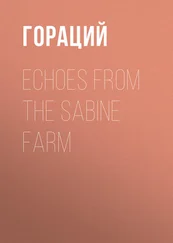The sky up above him was deep blue, the wind was blowing, but oddly enough a thin mist was still hanging above the ground.
Ernst Adolfsson was standing up on the edge of the cliff, looking out across the quarry with black eye sockets.
Gerlof opened his mouth to ask his friend if he was really the one who had pushed the sculpture down into the quarry, and if so, exactly what he’d meant by it — but a whisper made Ernst turn around.
“I killed them all.”
It was Nils Kant who had whispered.
“Gerlof... your grandson says hello.”
Nils Kant had come wandering across the alvar with his smoking shotgun, and now he was standing just around the corner of Ernst’s house; soon he would come over. Gerlof lifted his head and held his breath, full of expectation; he would finally get to see what Nils Kant looked like as an adult, as an old man. Did he still have his hair? Was it gray? Did he have a beard?
But it was Ernst who turned and disappeared around the side of the house instead, slipping slowly away in the mist like a silent ghost ship. Gerlof called after him, but Ernst was gone.
The grief he felt over Ernst was crippling when Gerlof finally awoke.
“Turn left,” said Gerlof to Julia in the car the following morning.
Julia looked at him, then braked.
“We’re going to Marnäs, aren’t we?” she asked. “Back to the home?”
“Soon. Not just yet,” said Gerlof. “I thought we might have a coffee here in Stenvik first.”
Julia studied him a few seconds longer, then turned left. They rolled back down toward the road above the water. Gerlof automatically glanced over to his boathouse to make sure no windows were broken.
“Left again,” he said, pointing to a house on the coast road. “That’s where we’re going.”
Julia braked and turned across the road without checking whether anything was coming toward them, or even looking in her rearview mirror.
“An old woman lives here,” she said as she pulled up in front of the house. “I saw her the day before yesterday... She was out with her dog.”
“She’s not that old,” said Gerlof. “I’d say Astrid Linder is only about sixty-seven, or maybe sixty-eight. She’s only recently retired... she was a doctor down in Borgholm for many years. But she grew up here.”
“And she lives in Stenvik all year round?”
“She does now. I moved out of my summer cottage, but Astrid did the opposite when she was widowed. She moved into hers.” Gerlof opened the door, felt the pain in his limbs as he twisted in his seat, and sighed. “Of course, she’s a bit fitter than me.”
Gerlof managed to swing his legs out, but Julia had to go round and help him to his feet. He gave her a brief nod of thanks and they walked toward the house.
“When I’m back in Stenvik, I pretend there are people living in all the houses all year round,” Gerlof said, looking around. “Sometimes I think the curtains move in the cottages. You can see shadows strolling along the village road, just small movements out of the corner of your eye... You can see ghosts most clearly out of the corner of your eye.”
Julia didn’t reply.
There was a wooden gate in the low wall, and Julia opened it. The garden inside was empty, but furnished. On a low limestone terrace in front of the house, four white plastic chairs stood around a small plastic table, and beside them stood a little gray porcelain gnome wearing a green hood and gazing out over the inlet with a fixed smile.
Even before they’d got as far as ringing the doorbell, the sound of excited barking could be heard from inside the house.
“Quiet, Willy!” shouted a woman’s voice, but the dog took no notice.
When the door opened, it came hurtling out like a little brown and white bolt of lightning, dashing around Julia’s and Gerlof’s legs; he had to hang on to her to avoid losing his balance.
“Calm down, you stupid dog!” shouted Astrid again.
She appeared in the doorway, small and white-haired, and, in Gerlof’s eyes, very beautiful.
“Hello, Astrid.”
Astrid grabbed hold of the fox terrier’s leash, held on tight, and looked up.
“Hello, Gerlof, are you back at home?” Then she saw Julia, and asked quickly, “Goodness — have you brought a new girlfriend with you?”
Despite the fact that the sun was shining, the autumn wind sweeping in across the island was persistent and bitterly cold. But still Astrid Linder set the table for morning coffee out on the terrace, fetched a blanket which she wrapped around Gerlof, and put on a thick green woolen sweater.
“I need a sweater,” said Gerlof.
“No you don’t. It’s nice and fresh out here,” said Astrid, bringing out the coffee and a plate of cakes — nothing homemade, just four shop-bought muffins. Astrid wasn’t fond of baking. She poured the coffee and settled down.
Gerlof had introduced Julia as his youngest daughter; she and Astrid had said hello, chatted a little about Willy’s tremendous energy, and watched the dog gradually calm down and settle under the table. None of them had mentioned Ernst.
Gerlof didn’t think Astrid remembered who Julia was, so he was surprised when she suddenly said quietly:
“You probably don’t remember me, Julia, but... I was there on that day, searching along the shore. My husband was there too.”
Gerlof saw Julia stiffen on the opposite side of the table; she slowly opened her mouth and searched for the right words.
“Thank you,” she said eventually. “I don’t remember... Everything was so mixed up that day.”
“I know, I know.” Astrid nodded and drank her coffee. “Everybody was running around all over the place. The police sent boats out into the sound, but nobody knew where they were supposed to be going. One group of villagers was sent southward along the water’s edge, and we went north with another group. We walked and walked along the shore and looked in the water and underneath all the boats that had been pulled up onto the shore, and behind every single rock. In the end it got dark and we couldn’t see anything anymore, not even a hand in front of our faces... so we had to turn back. It was terrible.”
“Yes,” said Julia, gazing down into her cup. “Everybody searched that evening. Until it got dark.”
“It was so dreadful,” said Astrid. “And he was neither the first nor the last to disappear in the sound.”
There was silence around the coffee table. The wind was blowing gently. Willy sneezed and shuffled uneasily at Astrid’s feet.
“The boy’s sandal has been found,” said Gerlof after a moment.
He was looking at Astrid, but he glimpsed Julia’s surprised expression out of the corner of his eye.
“I see,” said Astrid. “Was it in the water?”
“No,” said Gerlof. “On land. Somebody must have had it for all these years, but so far we don’t know who.”
“Goodness,” said Astrid. “But wasn’t it... didn’t he drown?”
Julia put down her coffee cup, but didn’t speak.
“Apparently not,” said Gerlof. “It’s complicated... We don’t really know much yet.”
“That man you mentioned yesterday, Gerlof,” said Julia. “Nils Kant. Might he know something about Jens? Is that what you think?”
“Nils Kant?” said Astrid, looking at Gerlof. “Why are you talking about him?”
“I just happened to mention him yesterday.”
Julia looked uncertainly from Astrid to Gerlof, as if she’d said something inappropriate. “I just thought... that maybe he was involved. Since he’d obviously caused problems before.”
Astrid sighed. “I thought Nils Kant had been forgotten by now,” she said. “When he left Stenvik—”
“He is forgotten, by and large,” Gerlof broke in. “The fact that Julia had never even heard of him until yesterday proves that, if nothing else.”
Читать дальше












